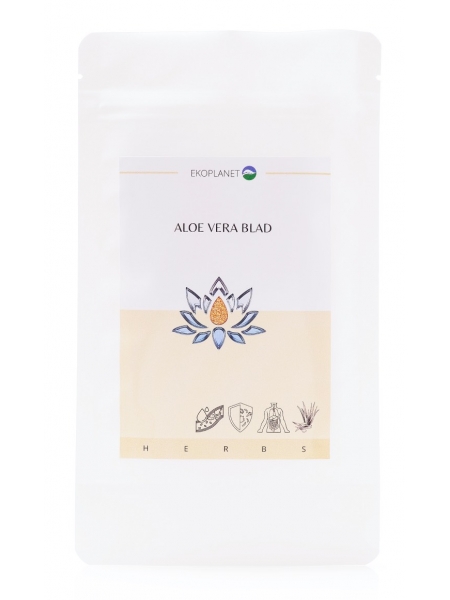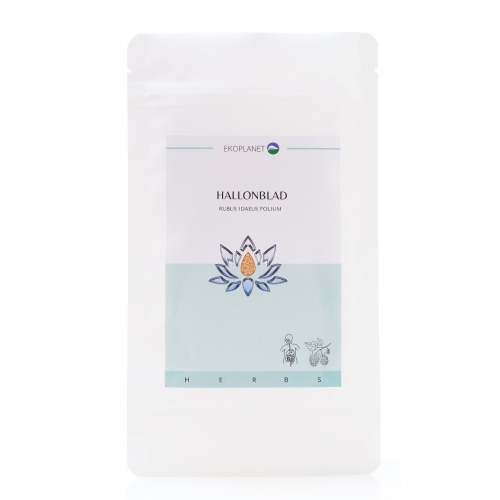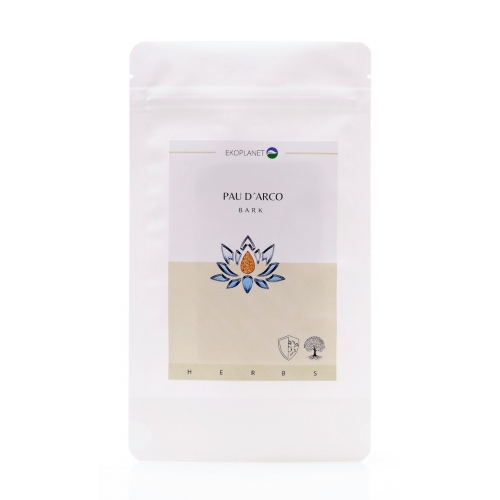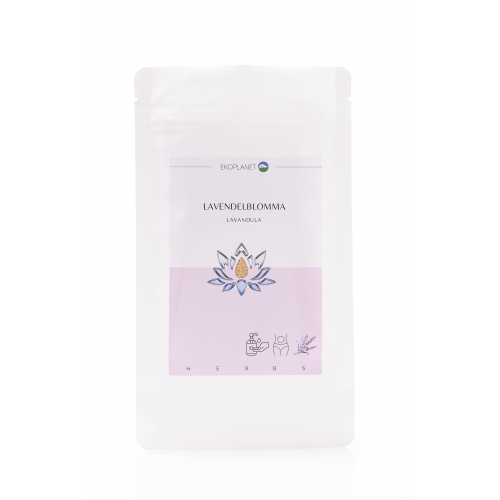Ekoplanet Aloe vera leaves - Aloe vera 100g
Aloe vera is a plant believed to have originated in North Africa. The leaves are suitable for drinking as well as for cosmetic use. They are rich in polysaccharides, vitamins, minerals and natural enzymes. The herb has a very wide range of uses.
Comparative price: SEK 550/kg
Aloe Vera origin
Aloe vera is a well-known old medicinal plant that has been used in self-medicine for thousands of years. The plant is thick-leaved and is believed to have originated in North Africa. Aloe grows in dry climates and is usually found in Africa and other dry areas. The plant can be about 60 to 100 cm in height. The leaves are thick and fleshy, green to green-grey.
Aloe - nutrients
Aloe consists of many valuable ingredients. It contains 75 potentially active ingredients: vitamins, enzymes, minerals, sugars, lignin, saponins, salicylic acid and amino acids.
Vitamins: aloe vera contains vitamins A, C and E, which are antioxidants, vitamin B12, folic acid and choline - an antioxidant that neutralizes free radicals,
Enzymes: Aloe vera contains enzymes: alkaline phosphatase, amylase, carboxypeptidase, catalase, cellulase, lipase and peroxidase. These enzymes help break down sugars and fats,
Minerals: Aloe contains calcium, chromium, copper, selenium, magnesium, manganese, potassium, sodium and zinc. These minerals are necessary for different enzyme systems to function normally,
Sugars: The plant contains monosaccharides (glucose and fructose) and polysaccharides. They are found in the mucilage of the plant and are known as mucopolysaccharides.
Plant steroids: Aloe contains four plant steroids: cholesterol, campesterol, β-sisosterol and lupeol.
Other: Aloe consists of 20 of the 22 amino acids required by the human body and 7 of the 8 amino acids required for the body to function normally. It also contains salicylic acid with anti-inflammatory and antibacterial properties.
Aloe Vera uses:
*dishes
*cosmetics
*dietary supplements
*herbal products
Is Aloe Vera a safe plant to use?
Topical application of aloe vera for minor skin problems is safe for most people. It is generally well tolerated, although skin irritation and allergic reactions are possible. Never use aloe on severe cuts or burns.
Do not use aloe vera internally if you have the following problems:
*hemorrhoids,
*kidney disease,
*impaired renal function,
*heart disease,
*diabetes.
Pay attention to how your body reacts to aloe vera. If you experience any sensitivity or side effects, do not use aloe vera. Also, avoid taking aloe within two weeks of a scheduled surgery.
Possible side effects of aloe vera include:
*kidney problems,
*blood in the urine
*low potassium,
*muscle weakness,
*diarrhea,
*nausea or abdominal pain
*electrolyte imbalance.
IMPORTANT!
Pregnant or nursing women and children under 12 should avoid taking aloe vera orally.
Ingredients: Aloe vera (Aloe vera) dried leaves 100%
Dosage: Put half a teaspoon of dried leaves in a cup of boiling water and leave for 10-15 minutes before serving. Drink up to 2 cups a day.
Storage: Store out of the sight and reach of children, in a closed container at a temperature not higher than 25°C, protected from light, moisture and the influence of foreign smells.
Country of origin: Poland
ATTENTION!
Be careful with internal use if you have the following problems: hemorrhoids, kidney disease, heart disease, and diabetes.
Do not use if you are allergic to any of the ingredients in the preparation. Not to be used by pregnant and nursing mothers. Do not use for children. Always consult your doctor.













